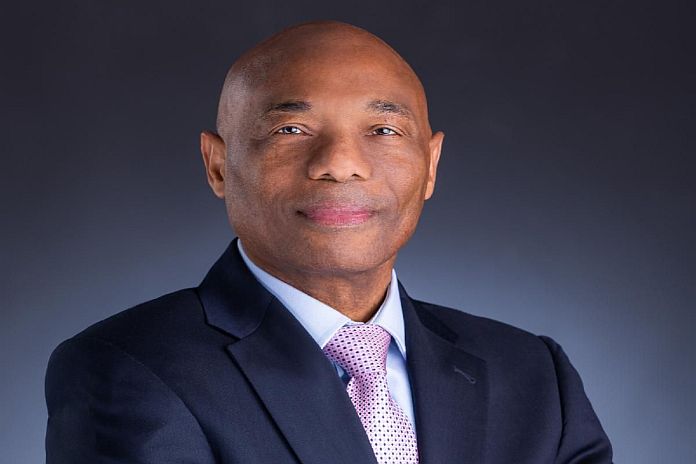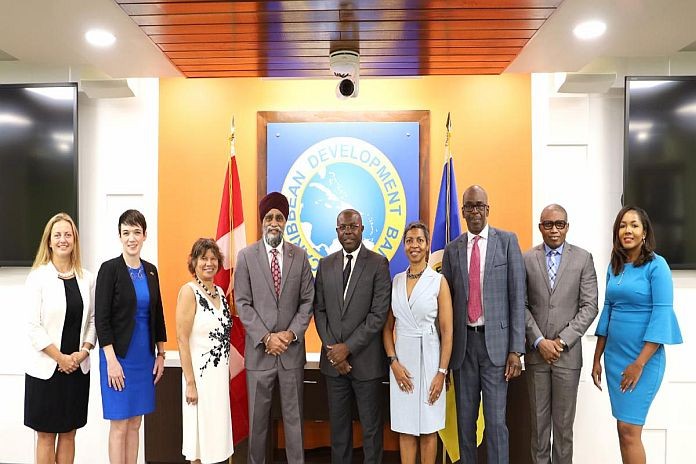BRIDGETOWN, Barbados – Deepening collaboration between Canada and the Caribbean Development Bank (CDB) on areas of mutual interest such as climate action and gender equality, was on the agenda when Canada’s minister of international development, Harjit S. Sajjan visited CDB on Monday.

Minister Sajjan who is also Canada’s governor to CDB, framed the visit as an opportunity for both learning from and engagement with CDB officials.
“My trip here is about learning – learning from all of you on what areas we can better work together on towards achieving the Sustainable development goals. It’s no secret that Canada has a very strong approach [on gender] through our Feminist International Assistance Policy. I’d love to hear from you on how we can work together to ensure all development initiatives also contribute to gender equality. We’ve already seen a significant impact in the Caribbean and other parts of the world and hope to continue to work together in this area in a meaningful and tangible way,” said the minister.
Minister Sajjan stressed the importance of the Canada-Caribbean relationship, noting:
“The Caribbean is very important to Canada because of its cultural, economic, historic, and social ties. I can assure you that everyone, from the prime minister to all of my cabinet colleagues will remain committed to partnership with the region,” stated minister Sajjan as he led off the bilateral meeting between his delegation and CDB’s team.
Canada and CDB have a long-standing partnership, as Canada was one of the founding members of the bank back in 1970.

CDB president, Dr Hyginus ‘Gene’ Leon, welcomed the opportunity for engagement with an enduring friend of the region.
He noted the bilateral came at a crucial juncture for the Caribbean in its development trajectory as it approaches deadlines for the Sustainable Development Goals while addressing the residual economic impact of the COVID-19 pandemic and ongoing climate vulnerability.
“The bank is at a very important juncture and that is because the region is at a critical point. We have little time; I’d argue even no time, to accelerate the development of the region. There is an existential crisis on the climate front as well as the issue of access to finance to propel development and position our countries to be actors on the global stage with the means to promote and sustain the livelihoods of the people,” adding. “The only way we can do this is through building resilient economies,” stressed Dr Leon.





